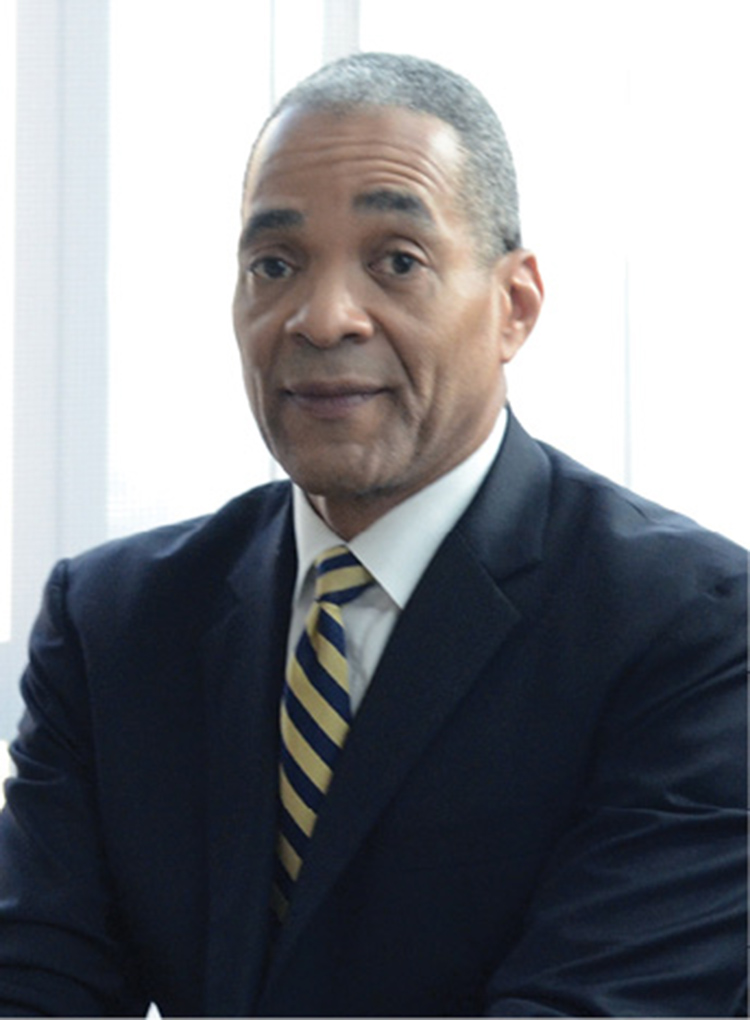A 1997 experience taught me the power of pro bono and the need to fight for equality

Photo of Reginald Turner by Danny Duran
Diversity, justice and equality are vitally important to our nation’s health. That’s why diversity, equity and inclusion are among the American Bar Association’s core goals.
For attorneys, a professional obligation exists to pursue justice and equality, especially for vulnerable populations. And volunteering for pro bono work is one of the most fulfilling ways to do this.
The importance of pro bono legal services became clear to me in a very personal way 25 years ago, when I was part of a diverse group of lawyers enlisted to aid the University of Michigan when it was sued for promoting diversity in its student body.
The Michigan cases confronted our nation with critical questions of justice and equality, and as always, lawyers played a pivotal role in the struggle.
After years of intense litigation, in June 2003, the University of Michigan and an unprecedented coalition of academic, business, civic and professional groups celebrated the landmark decisions of the U.S. Supreme Court in the Michigan diversity cases (Grutter v. Bollinger and Gratz v. Bollinger). The opinions reinforced the value of diversity as a central justification for the consideration of race in admissions.
I worked with some of the finest civil rights lawyers in the nation for six years as these cases made their way to the Supreme Court. I could not help but feel we were channeling Thurgood Marshall when he led the NAACP Legal Defense Fund on an unprecedented string of victories in the Supreme Court. I felt as if he were there with us, urging us to think and to find the less-than-obvious arguments that could persuade the court to do justice once more.
When the decisions came down, Justice Sandra Day O’Connor’s thoughtful majority opinion in Grutter and her concurrence in Gratz reached the conclusion—perhaps swayed by a record number of amicus briefs asserting the need to prepare all students for an increasingly diverse society—that a narrowly tailored diversity admissions plan is necessary to achieve a compelling governmental interest.
O’Connor wrote in Grutter: “These benefits are not theoretical but real, as major American businesses have made clear that the skills needed in today’s increasingly global marketplace can only be developed through exposure to widely diverse people, cultures, ideas and viewpoints.”
The work continues
Now, nearly 19 years later, it is even more clear that ignoring diversity in education or the workplace takes the nation in the wrong direction. Today, the ABA Diversity and Inclusion Center promotes collaboration, coordination and communication to advance ABA Goal III: to eliminate bias and enhance diversity and inclusion throughout the ABA, legal profession and justice system.
The center is a central clearinghouse for ABA diversity resources, including toolkits, programs, awards, publications and fellowships. Through its many commissions and groups, the ABA addresses issues pertaining to racial justice, disability rights, women’s rights, Hispanic rights, sexual orientation and gender rights as well as diversity in education and many other areas.
In September, the ABA held its inaugural Equity Summit—a highlight of which was an appearance by Supreme Court Justice Sonia Sotomayor—where members of the legal community came together to educate themselves and exchange insights on key diversity, equity and inclusion challenges.
It is also clear that pro bono legal services can have a tremendous impact. My personal experience 25 years ago dealt with diversity issues, but the need for pro bono work exists in immigration and death penalty cases, veterans’ issues and so many more areas. The COVID-19 pandemic has created even greater needs for pro bono help.
The ABA Center for Pro Bono provides technical assistance and planning advice to bar associations, pro bono programs, legal services offices, law schools, corporate counsel, judges and government attorneys.
Many attorneys point to a pro bono case as their most fulfilling and gratifying professional experience. My personal experience took me to the Supreme Court and a landmark diversity case. While not all pro bono work follows that path, I know that every ABA lawyer can have the rich pro bono experiences that so many others have enjoyed.
This story was originally published in the February-March 2022 issue of the ABA Journal under the headline: “Case for Diversity: A 1997 experience taught me both the power of pro bono work and the need to fight for equality.”
Follow President Turner on Twitter @ABAPresident or email [email protected].
Write a letter to the editor, share a story tip or update, or report an error.


